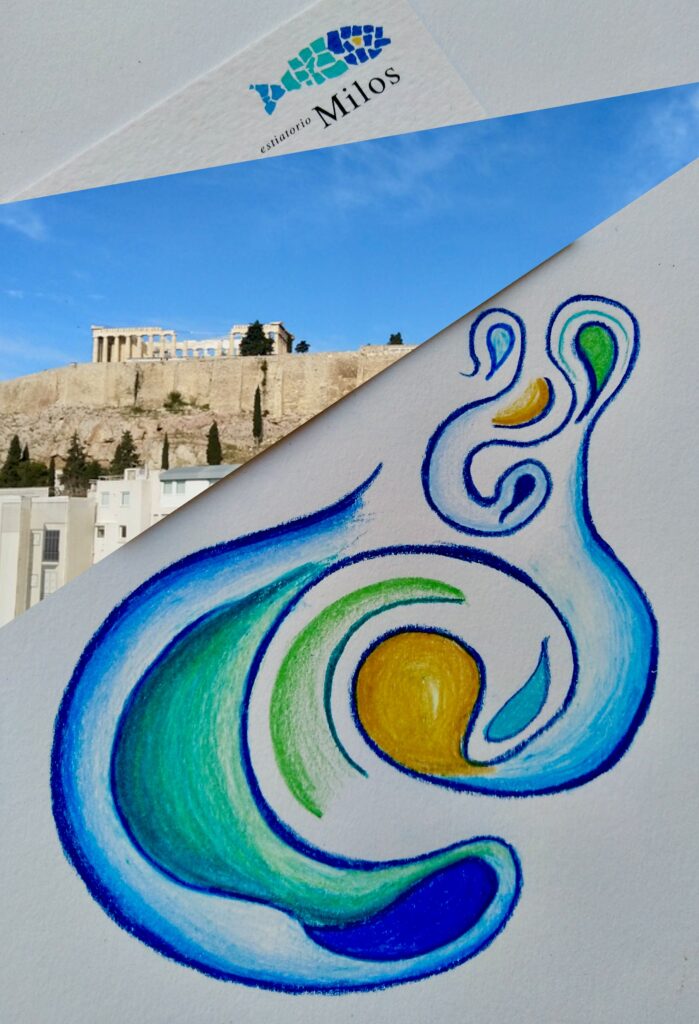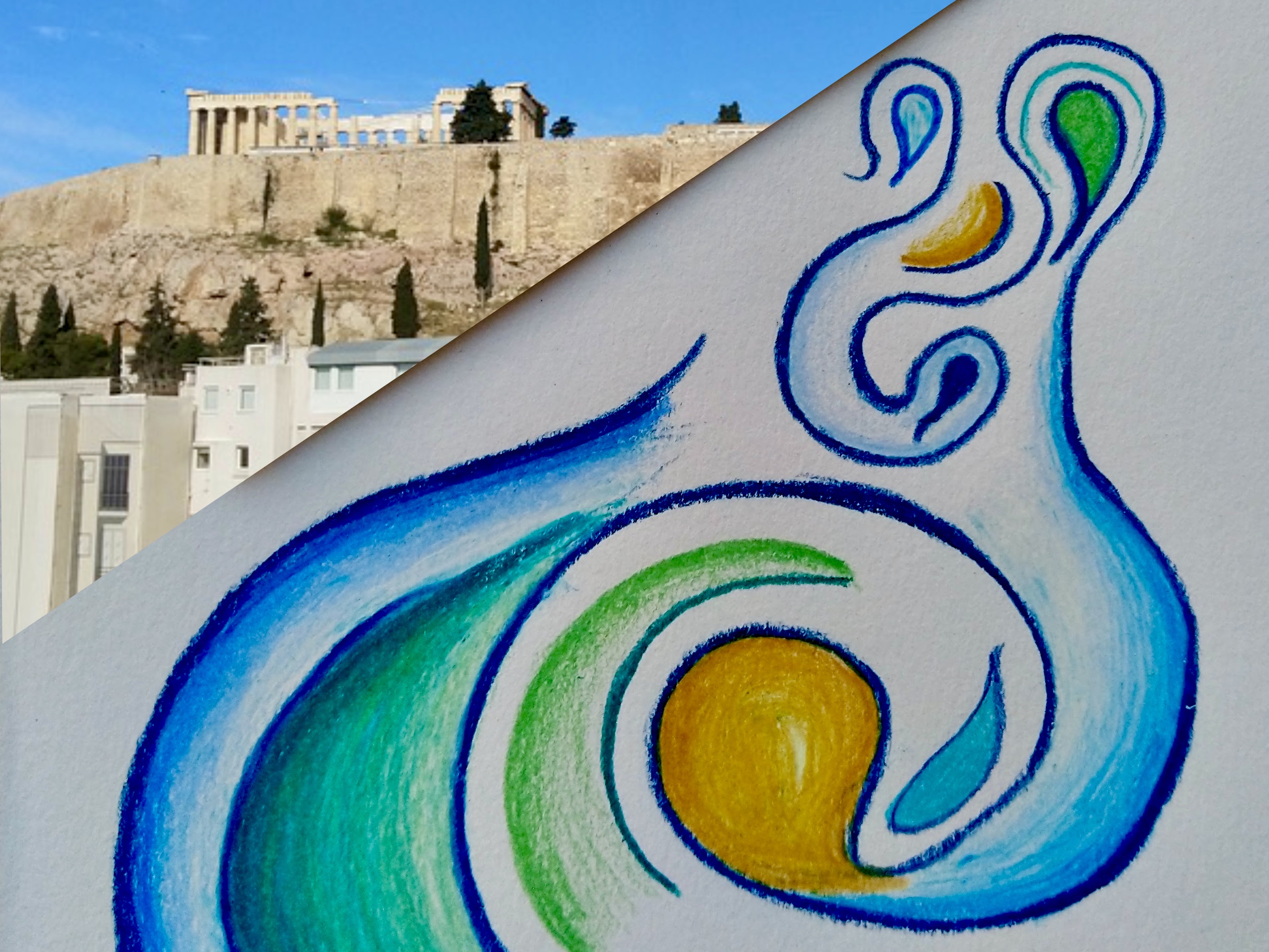Three months ago, the Pope died. He had risen from his illness, wished everyone “Buona Pasqua”, then he died. He had picked some moment, or maybe God had. In my imagination, they both have a good sense of humour.
His death (the Pope’s, not God’s) did not come as a surprise, and yet I was shocked. It is strange how these things work sometimes. It was the first time a pope died and I felt genuinely sad. Though Pope John Paul II had always reminded me of my dear grandfather a bit (the haircut I suspect), I realised with Pope Francis, I had really loved him being there. His voice in the world, his presence, had been a comfort to me. He had made me feel there was so much love out there, so many good things to fight for, that we are all allowed to be failing, limited human beings, that we should never give up on ourselves, or on the world. That hope and dreams are not just fun but of vital importance for life and the future.
Pope Francis had introduced me to the (I imagine) old concept of memoria futuri, the memory of the future, the ultimate dream, the innate feeling of goodness, beauty and peace, paradise perhaps, that we all have inside us, driving us forward to have it again, some day. Like Cavafy’s poem Ithaki, the island of Ithaka as life’s purpose and life as the journey towards it, the world caressing our senses, while we learn to deal with our own-created monsters (I will add the English translation below, it is absolutely beautiful). To me, memoria futuri was the answer to how past, present and future are related in the story of our lives, all there in the moment that is now, making up our being, who we are and how we love, giving us purpose.
I loved how passionate the Pope was about world peace, taking care of our natural environment, our world and its people, stressing again and again the importance of human dignity: the basic right for everyone to have “tierra, techo, trabajo”: land, lodging and labour. In his advocations for a humane treatment of the victims of war and economic hardship, his indignation about the refugees drowning near Lampedusa, he expressed the grief I felt in the face of so much human suffering. At the same time, he seemed a symbol of all the collected human efforts to help these people and make the world a better place.
In the Netflix series Stories of a Generation, he addressed the importance of contact between the different generations, for older people to keep dreaming and for younger people to be lifted by older people’s dreams. I could relate to his warning against (metaphorical) sterility: inhibiting these dreams and hence love. To me, he was voicing love and trust, he helped me feel safe in the world. And so I felt free to disagree with him, to consider him imperfect. I believe it is for this reason he often asked: “Pray for me,” telling his audience: I need it just as much as you do.
Maybe this is why, when I came upon his little booklet called The Name of God is Mercy, I wanted to read it. I had been looking how to forgive myself for a long time and I wondered whether he could help me feel more comfortable, more at peace with myself, with the shame I felt, the mistakes I had made, the life I had lead, the life I was still leading. I wanted to become okay with who I was, right now.
It was not about what I did right or wrong, it was about me feeling like I had not been able to carry the responsibility for myself. That I had not protected myself in dangerous situations, not appreciated myself for my beauty, my intuition, my capability. I had deprived myself of life’s bounty and beauty, kind people around wanting to get to know me. I had judged myself and people that I loved. And I was still doing it. I longed to become okay with all of that, failing, yet full of love to give.
And so, if you feel shame for what you believe you do wrong, for what you want, for how you behave in certain situations, for choices you make, emotions you feel, for your anger, your fear, I want you to know it’s okay to be bad too. All human beings are. We hurt people sometimes, we hurt ourselves sometimes. And then we can listen. And so, I wish for you to trust yourself, to listen to yourself, to who you are. To trust yourself that whatever you will hear and learn this way about yourself, you will approach it with love and that you can learn to do so, bit by bit, no matter what it is, no matter who you are. Love is the answer.
I started reading what the Pope had to say about mercy, about forgiveness. More about that, in the next post.
For the meantime, I send you all my warmest wishes for you to be well and have a good time. Below, I will add Cavafy’s poem Ithaki. I believe this is his memory of the future.
With love.
Ithaka
By Constantine P. Cavafy
As you set out for Ithaka
hope your road is a long one,
full of adventure, full of discovery.
Laistrygonians, Cyclops,
angry Poseidon—don’t be afraid of them:
you’ll never find things like that on your way
as long as you keep your thoughts raised high,
as long as a rare excitement
stirs your spirit and your body.
Laistrygonians, Cyclops,
wild Poseidon—you won’t encounter them
unless you bring them along inside your soul,
unless your soul sets them up in front of you.
Hope your road is a long one.
May there be many summer mornings when,
with what pleasure, what joy,
you enter harbors you’re seeing for the first time;
may you stop at Phoenician trading stations
to buy fine things,
mother of pearl and coral, amber and ebony,
sensual perfume of every kind—
as many sensual perfumes as you can;
and may you visit many Egyptian cities
to learn and go on learning from their scholars.
Keep Ithaka always in your mind.
Arriving there is what you’re destined for.
But don’t hurry the journey at all.
Better if it lasts for years,
so you’re old by the time you reach the island,
wealthy with all you’ve gained on the way,
not expecting Ithaka to make you rich.
Ithaka gave you the marvelous journey.
Without her you wouldn’t have set out.
She has nothing left to give you now.
And if you find her poor, Ithaka won’t have fooled you.
Wise as you will have become, so full of experience,
you’ll have understood by then what these Ithakas mean.

Copyright Credit: C. P. Cavafy, “The City” from C.P. Cavafy: Collected Poems. Translated by Edmund Keeley and Philip Sherrard. Translation Copyright © 1975, 1992 by Edmund Keeley and Philip Sherrard. Reproduced with permission of Princeton University Press.
Source: C.P. Cavafy: Collected Poems (Princeton University Press, 1975)
Retrieved from: https://www.poetryfoundation.org/poems/51296/ithaka-56d22eef917ec (24th July 2025).

Leave a Reply